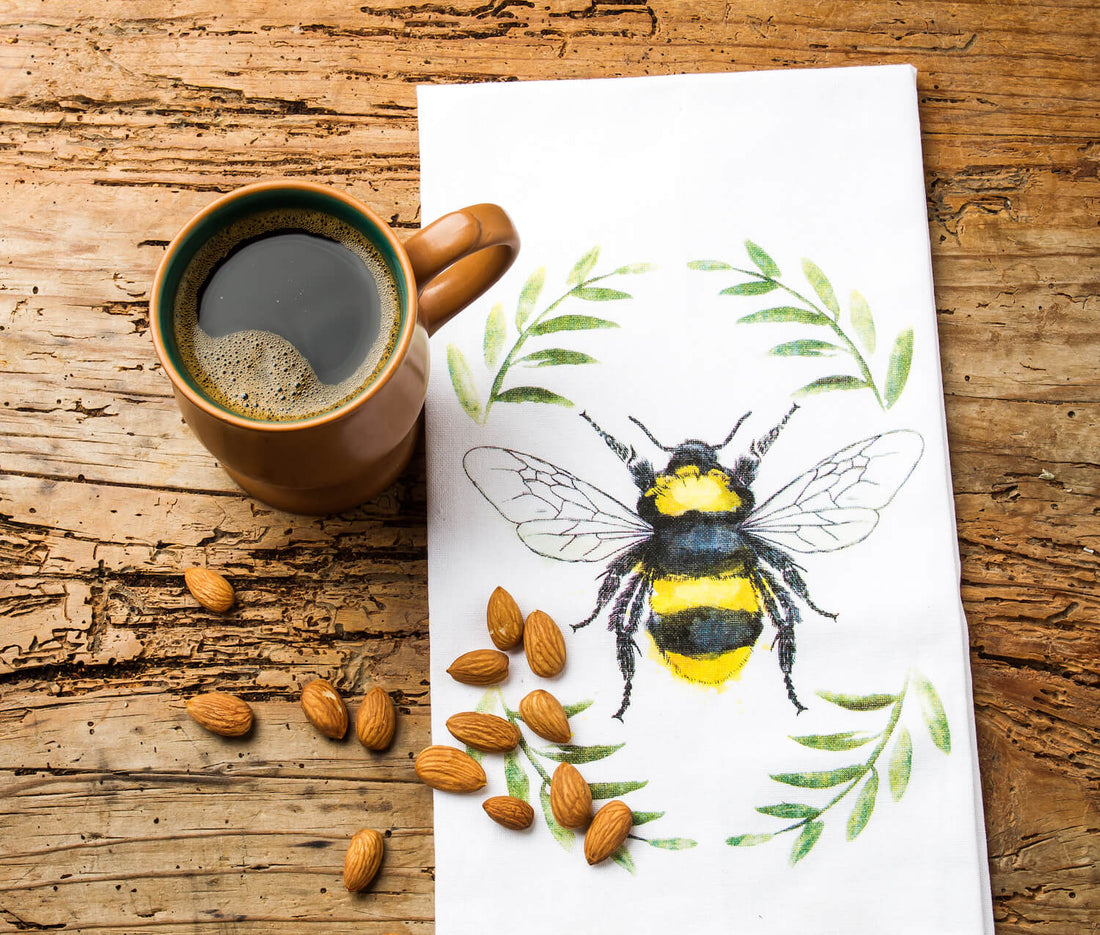Ever since I wrote a blog post three years ago about the devastating colony collapse that bees and other pollinator populations are undergoing, I’ve been seeking a consistent source for almonds grown under a new certification issued by the Xerces Society called Bee Better Certified (BBC) almonds. I’m excited to tell you that Teeccino is now buying almonds for all our blends from a Bee Better Certified grower here in California!
When I was first looking into this certification, I couldn’t find all the specifications we require for our special roast of almonds. Since 1994, when I originally developed our proprietary golden roast in my kitchen oven that produces the wonderful nutty flavor that imparts richness to Teeccino, I’ve been working with the same almond processor. Their roasting and grinding process requires very strict specs that were hard to duplicate from the limited sources of almonds that were BBC.
 California has 1.65 million acres devoted to almond trees. Although almonds are 100% produced by bee pollination exclusively, commercial orchards are harmful to bee health due to the chemicals they use for weed and insect control, and the absence of other plants favored by bees.
California has 1.65 million acres devoted to almond trees. Although almonds are 100% produced by bee pollination exclusively, commercial orchards are harmful to bee health due to the chemicals they use for weed and insect control, and the absence of other plants favored by bees.
Bees need a varied source of pollen and nectar throughout the growing season to maintain their health. BBC almond growers must dedicate at least 5% of their land to create a biodiverse habitat that supports bee health.
Other pollinators require native plants too for laying their eggs and making their home, but native plants are decimated by weed killers like Round-up (also called glyphosate).
The monarch butterfly only lays a single egg on a milkweed leaf and its caterpillar only eats milkweed leaves when it hatches. With biodiverse borders growing around almond orchards and cover crops growing between the trees, almond growers help sustain healthy populations of pollinators.
Even conventionally grown almonds can be certified Bee Better if the use of pesticides is restricted with non-chemical practices used as a first line of defense and harmful pesticides, like the neonicotinoids, prohibited. Protecting pollinators from exposure to pesticides is an integral part of being certified.

Our Bee Better Certified grower has created a year-round habitat on their land for native bees as well as honey bees. They plant 13 different varieties of native plants that don’t require irrigation to bloom and provide pollen at different times of the year. These native plants also help with pest control, a win-win for all!
With cover crops and irrigation management, BBC growers have been able to reduce their water usage and reduce the need for fertilizers, organic or conventional. That is a big win for the environment as high nitrogen run-off from farm land into rivers and streams pollutes land, water and air. It can be converted by microbes into nitrous oxide, which is a potent greenhouse gas contributing to climate change.
More and more brands like Teeccino are asking their almond growers to become Bee Friendly Certified. Kind Healthy Snacks set a goal to convert to only BFC almonds by 2025. They started when we did in 2020. We’re a much smaller brand but we’re happy today to say that we’ve achieved sourcing our almonds from BFC growers in 2023
If you’d like to join forces to support pollinators, become a member of the Xerces Society. Read about the important work they do by visiting their website! (https://xerces.org/)



1 comment
Wow, Bees are pretty cool.